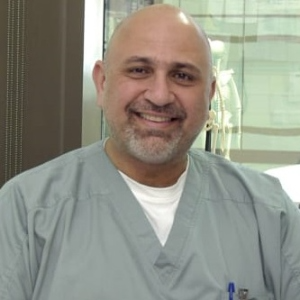Title : Understanding chronic pain: Are we missing the mark?
Abstract:
Abstract: Short Description of what will be discussed during the presentation (about 250 - 500 words)
Chronic pain is perhaps the most burdensome health issue facing the planet.
Our understanding of the pathophysiology of chronic pain has increased substantially over the past 25 years, including but not limited to changes in the brain. However, we still do not know why chronic pain develops in some people and not in others.
Patients with chronic pain are still managed with, in mind, the conceptualization of René Descartes on the existence of pain centers in the brain activated through an electrical system following a nociceptive response.
Most of the recent developments in pain science, that have direct relevance to clinical management, relate to our understanding of the role of the brain, the role of the immune system, or the role of cognitive and behavioral factors.Although the Biopsychosocial model of pain management was presented decades ago, the Bio-reductionist model remains, unfortunately, at the heart of many practices across professional and geographic boundaries.
A large body of evidence shows that nociception is neither sufficient nor necessary for pain. Pain is a conscious experience that can certainly be, and often is, associated with nociception, however, always modulated by countless neurobiological, environmental, and cognitive factors.This presentation will highlight the current misconceptions of chronic pain concepts, and their misperceptions by clinicians. It will also attempt to bridge the considerable gap between what we already know on pain but somehow disregarded, the development in pain science, and clinical practice.
Key words: Nociception; Biopsychosocial model; chronic pain
What will audience learn from your presentation?
This presentation will highlight the current misconceptions of chronic pain concepts, and their misperceptions by clinicians. It will also attempt to bridge the considerable gap between what we already know on pain but somehow disregarded, the development in pain science, and clinical practice.
It is unfortunate how majority of clinicians are still managing chronic pain the may they manage acute pain, hoping this advocacy presentation will push clinicians to attain more trainings on chronic pain management.




